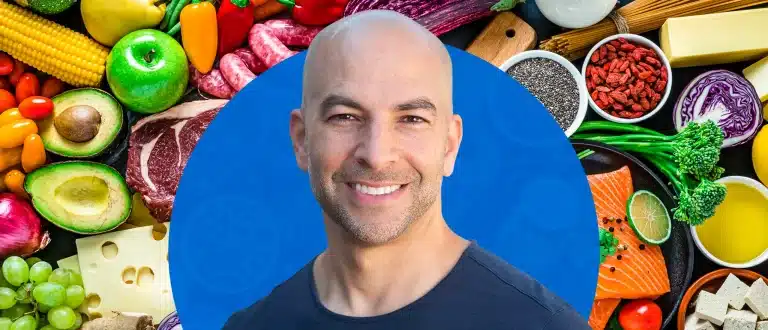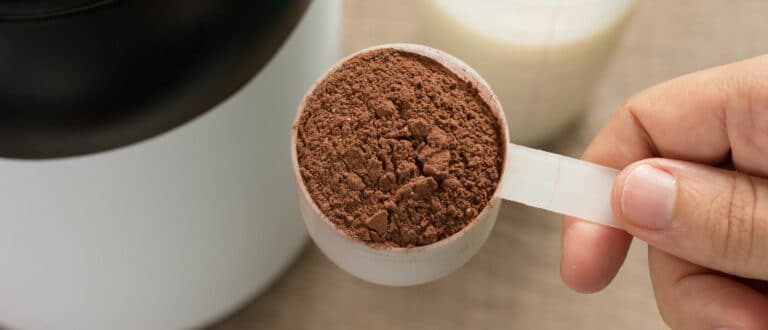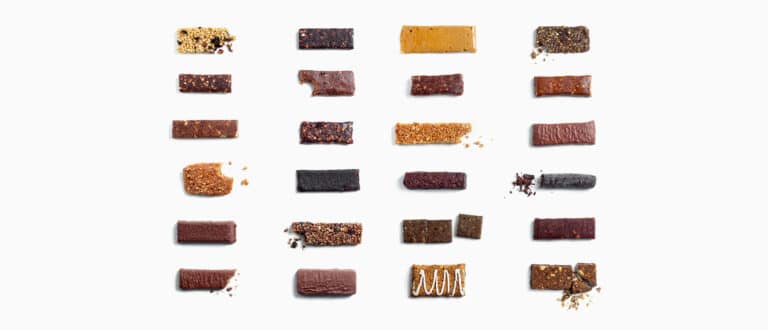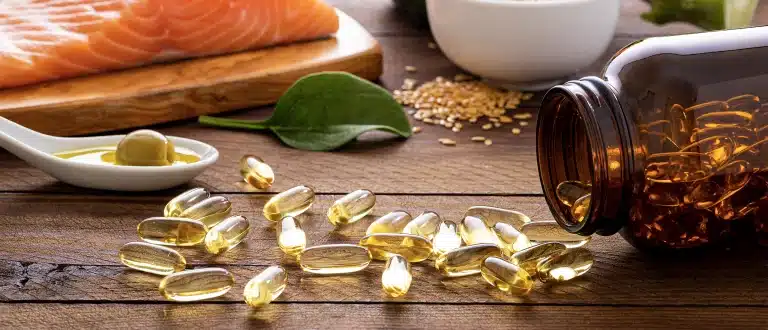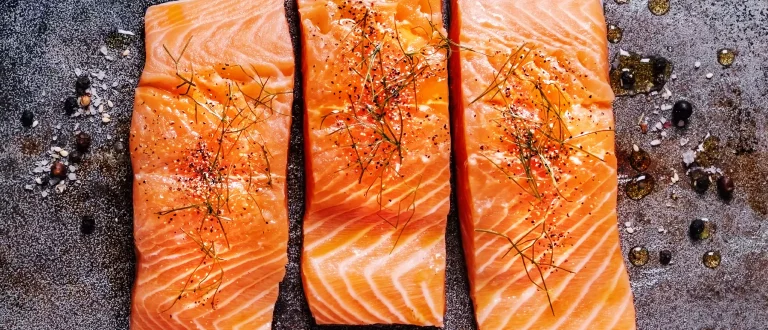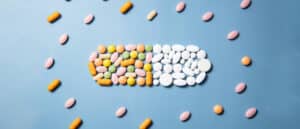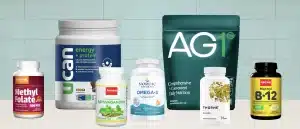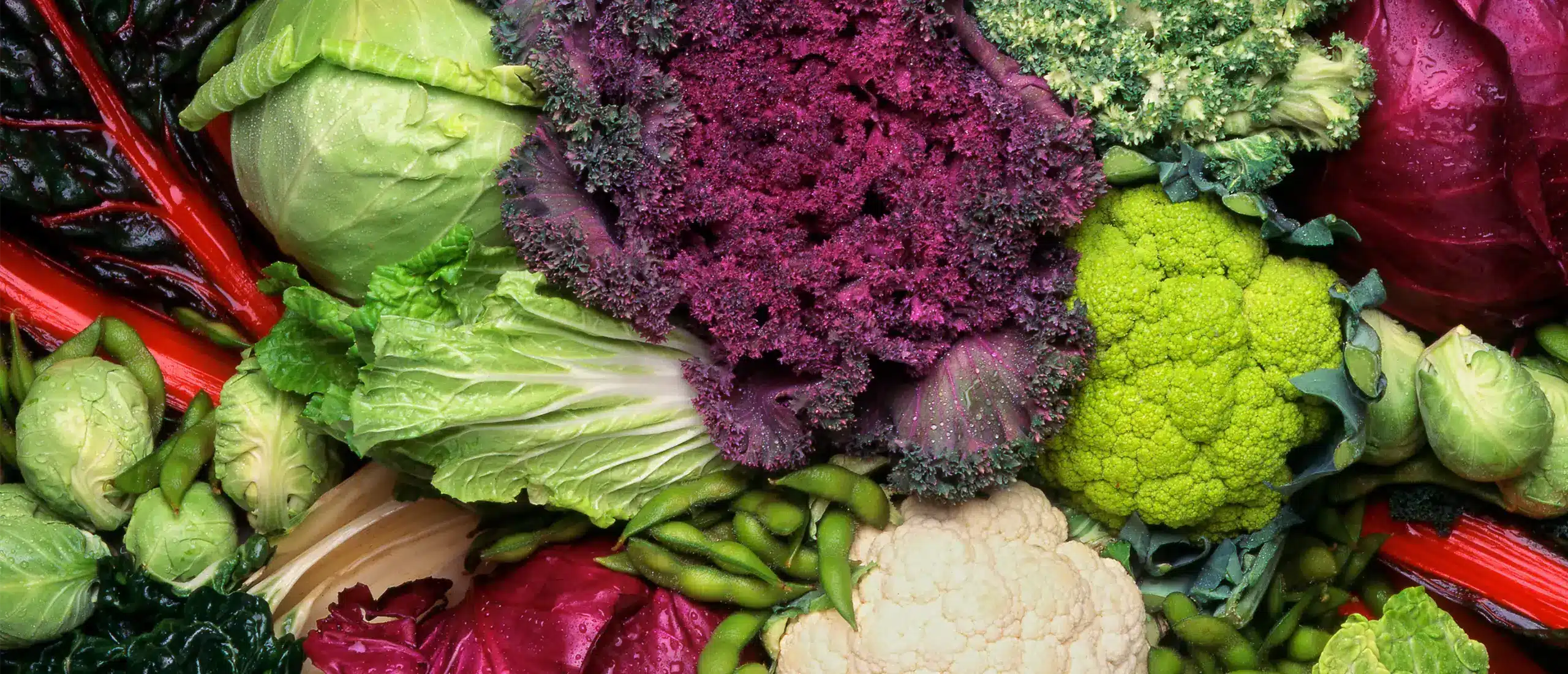
Eat These 7 Glutathione-Rich Foods if You Hate Getting Sick
- By Sydney Bueckert, NASM C.P.T., C.E.S., F.N.S., G.P.T.S.
- Expert Review by Imashi Fernando, MD, RD
- June 6, 2023
When you feel a cold coming on, there’s one immunity-boosting vitamin you always reach for: vitamin C. And yes, vitamin C is a powerful antioxidant that fights inflammation and keeps your body healthy, so keep pouring OJ when you get the sniffles. But it’s certainly not the only antioxidant that can ward off unwanted sickness. Glutathione—your body’s master antioxidant and maestro of the immune system—is your first line of defense against oxidative stress.
Longevity doctor Mark Hyman, M.D. touts glutathione as the secret to preventing age-related diseases like cancer, heart disease, and dementia (1). It acts as an antioxidant, working to counteract free radicals and minimize oxidative stress, which can harm your body’s cells.
Your body produces its own glutathione, but according to Imashi Fernando, M.S., R.D., poor diet, pollution, toxins, medications, stress, aging, and infections can deplete your glutathione levels. Signs you might have low glutathione levels include low quality sleep, persistent brain fog, low immunity, and fatigue.
How to get more glutathione? You can eat your way to higher glutathione levels, per Fernando. Here’s how.
Glutathione at a Glance
- Glutathione is your body’s master antioxidant and has been touted as an immune system booster, anti-aging powerhouse, and cancer preventer.
- Glutathione is naturally synthesized in your body from major amino acids.
- As we age, we lack key amino acids needed to build glutathione, and can suffer from glutathione deficiency.
Why Not Just Eat Glutathione Rich Foods?
To get more glutathione you could eat more glutathione-rich foods, like cucumber, avocado, spinach, green beans, asparagus, and okra. However, per Fernando, raw glutathione is poorly absorbed by the human body because it’s often broken down by the digestive system before it can be absorbed.
Instead, focusing on eating glutathione precursors (like amino acids: cysteine, glycine, and glutamic acid), cofactors (like selenium and vitamin C), and other healthy, whole foods which give your body the energy and components it needs to synthesize glutathione may be more impactful (1). What foods are those exactly? Glad you asked.
Foods That Increase Glutathione
Here, the glutathione-supporting foods to scribble on your shopping list.
1. Brassica vegetables
High in vitamins C and K, fiber, and beta-carotene, crunchy brassica vegetables (also known as cruciferous vegetables) are spiked with sulforaphane, a sulfur-rich compound, that studies have shown can increase glutathione and glutathione-related enzymes (2).
Brassica vegetables include brussels sprouts, kale, cauliflower, bok choy, and cabbage. Other sulfur-rich plants include allium vegetables like garlic, onions, and shallots, as well as fiber-packed beans and legumes.
Stir-fries, salads, soups, taco toppings, crispy snacks, and roasted side dishes are just a few of the many ways Fernando recommends sneaking these veggies into your weekly routine. However you choose to serve them up, consider eating them raw or mildly steamed, as one study suggests this can preserve the integrity of sulfur compounds (3).
2. Vitamin C foods
If you needed another reason to eat more vitamin C, here it is. Vitamin C, works as an antioxidant to protect your cells from oxidative damage while maintaining the body’s supply of other antioxidants, including glutathione.
One study found that vitamin C plays an important role in restoring depleted glutathione levels (4). In turn, glutathione might increase recycling of vitamin C, enhancing it’s protective effect on oxidative stress (5).
Seek out vitamin C-loaded strawberries, citrus fruits, papayas, kiwis, or bell peppers next time you’re on the hunt for a boost of glutathione. Even better, whip up a vitamin C smoothie packed with strawberries, oranges, kiwis, and a banana for your daily dose of potassium.
3. Polyphenol-rich foods
Polyphenols are a category of compounds naturally found in plant foods—such as fruits, vegetables, herbs, spices (for example, turmeric and curcumin), tea, dark chocolate, wine, and anti-aging coffee—that act as antioxidants, and have been linked to a decreased risk for cardiovascular diseases such as heart attack and coronary artery disease (6). Polyphenols also associated with an increase in glutathione levels.
One study uncovered that drinking both conventional and organic grape juice led to significantly increased glutathione, and overall antioxidant activity when compared with water (7). Another found that weight lifters who consumed pomegranate juice before two Olympic weightlifting sessions experienced a 6.8 percent increase in blood glutathione peroxidase (8).
Fernando advises choosing whole fruit over fruit juice to take advantage of the high fiber content in fruit. If juice is your only option, she recommends limiting added sugars, and drinking no more than two cups a day.
4. Whey protein
Your favorite post-workout recovery drink may have benefits beyond helping you build muscle. Since precursors of glutathione are amino acids, whey protein may influence the amino acid pool your body can draw from to synthesize glutathione.
For instance, a study published in The Journal of Nutritional Biochemistry found that overweight individuals affected with diabetes mellitus or impaired fasting glucose who consumed 40 grams of whey protein a day saw an increase in glutathione peroxidase (9).
Another found after completing an intense resistance training workout, young men who supplemented with whey protein saw significant increases in glutathione peroxidase in comparison to a placebo group (10).
Plus, whey protein is a quick and easy way to help your muscles recover and repair faster. Win-win.
5. Selenium-rich foods
Add selenium to the ever-growing list of antioxidants that aren’t just immunity champions, but give glutathione a helping hand. Selenium is a glutathione cofactor. In other words, selenium helps glutathione do it’s thing.
Eating a balanced diet including selenium-rich foods will ensure healthy levels of both. The Recommended Dietary Allowance (RDA) for men is 55 micrograms a day. It’s also worth noting that excess selenium can lead to increased oxidative stress rather than relieve it, so consume no more than 400 micrograms of selenium per day.
To get more, load your plate with beef, lean chicken, fish, organ meats, brown rice, brazil nuts, and cottage cheese.
6. Omega-3 fatty acids
Thanks to their anti-inflammatory properties, mighty omega-3s may help glutathione play defense against inflammation and oxidative stress.
One study found that Parkinson’s patients who took 1000mg of omega-3 fatty acids from flaxseed oil along with 400IU of vitamin E for 12 weeks saw an increase in blood glutathione concentrations and an overall decrease in inflammatory markers (11).
Fatty fish, flaxseeds, chia seeds, and walnuts are just a few of the ways to get more omega-3’s in your diet. Fernando champions at least two servings of fatty fish a week, adding flax and chia seeds to your smoothies or oatmeal, and snacking on walnuts in the afternoon.
7. Milk thistle
Milk thistle supplements are another simple way to boost glutathione naturally; and, according to Hyman, has long been used to treat liver disease (12).
Milk thistle is comprised of three active compounds, collectively known as silymarin—which is well known for its antioxidant properties—what researchers believe supports glutathione by preventing cell damage.
Health Benefits of Glutathione
Glutathione has gained buzz in recent years for its ability to keep you healthy in the short term while fighting against chronic diseases. Here, the other benefits you can expect from eating more:
- Reduces oxidative stress/inflammation
- Supports the brain
- Improves skin
- Supports immune system
- Improves liver health
- Boosts strength and physical performance
- May extend lifespan
Other Ways to Increase Levels of Glutathione
Get enough sleep
Add glutathione to your list of reasons to catch some z’s. One study measuring levels of glutathione in 30 healthy people and 30 people with insomnia found that glutathione peroxidase was significantly lower in people with insomnia (13). Seek to improve your sleep hygiene to protect your glutathione levels.
Exercise regularly
If you’re looking for a swell of motivation to get you off the couch, physical activity isn’t only good for your physical and mental well-being. According to one study, moderate exercise may increase glutathione levels (14).
Another study suggests a combination of strength and cardio increases glutathione the most in comparison to cardio and strength training alone (15). So, hit the gym and get a good variety of activities throughout the week.
Smoke and drink in moderation
Interestingly, the small airways of your lungs require glutathione to function properly. Healthy lungs have up to 1,000 times more glutathione than other parts of the body.
One study linked chronic alcohol consumption to linked to an 80-90 percent decrease in lung glutathione levels (16). Another suggests that a combination of smoking and alcohol can decrease glutathione activity (17). If you do smoke or enjoy indulging a sip of whiskey, keep it to a minimum to bolster your glutathione.
Get injections
Glutathione is naturally synthesized in your body from major amino acids cysteine, glycine, and glutamic acid. However, as we age, studies show we lack cysteine and glycine—two key building blocks of glutathione (18). “This could help explain why older adults are more likely to experience glutathione deficiencies,” says Fernando.
She notes that smokers, older adults, people with chronic health conditions like diabetes, or people with weakened immune systems may benefit from glutathione supplementation.
Supplementation comes in many forms, but “intravenous, sublingual, and liposomal forms of glutathione are more effective because they are more protected from the digestive system,” notes Fernando.
Glutathione injections bypass the digestive system and are safe, and widely available. Before getting a jab, you’ll need to get a prescription from your doctor. The typical dose varies from person to person, so work with your doctor to find the right amount for you.
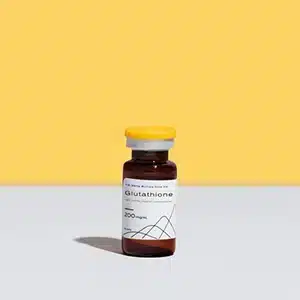
Glutathione is the first line of defense against oxidative stress, processing toxins out of our body, neutralizing free radicals, increasing cellular function, and promoting cellular turnover. Now available through Hone.
The Bottom Line
- Glutathione is a powerful antioxidant that is your body’s first line of defense against oxidative stress.
- You can increase glutathione through eating glutathione foods, but since it’s poor absorbed glutathione-supporting foods may be a better bet.
- You can also boost glutathione by getting good sleep, exercising regularly, minimizing smoking and drinking, or getting injections.
References
1. Minich, D. et al (2019). A Review of Dietary (Phyto) Nutrients for Glutathione Support.
2. Sedlak, T. et al (2018). Sulforaphane Augments Glutathione and Influences Brain Metabolites in Human Subjects: A Clinical Pilot.
3. Kramer, S. et al (2017). Sulforaphane Formation and Bioaccessibility Are More Affected By Steaming Time Than Meal Composition During In Vitro Digestion of Broccoli.
4. Park, S. et al (2018). Vitamin C in Cancer: A Metabolomics Perspective.
5. Martins, M. et al (2021). Vitamin C Decreases Reduced Glutathione in Chronic Haemodyalisis Patients: a Pilot, Randomised, Double-Blind Trial.
6. Behl, T. et al (2020). Pleotropic Effects of Polyphenols in Cardiovascular System.
7. Toaldo, I. et al (2016) Acute Consumption of Oranig and Conventional Tropical Grape Juices (Vitis Labrusca L.) Increases Antioxidants in Plasma and Erythrocytes, but Not Glucose and Uric Acid Levels, In Healthy Individuals.
8. Ammar, A. et al (2017) Effects of Pomegranate Juice on Oxidative Stress Biomarkers Following Weightlifting Exercise.
9. Flaim, C. et al (2017). Effects of Whey Protein Supplementation on Oxidative Stress, Body Composition and Glucose Metabolism Among Overweight People Affected by Diabetes Mellitus or Impaired Fasting Glucose: A Pilot Study
10.Behboudi, L. et al (2019). The Effect of Whey Protein Supplementation After Eccentric Resistance Exercise on Glutathione Peroxidase and Lactate Dehydrogenase in Non-Trained Young Men.
11. Taghizadeh, M. et al (2017). The Effects of Omega-3 Fatty Acids and Vitamin E Co-Supplementation on Clinical and Metabolic Status in Patients with Parkinson’s Disease: A Randomized, Double-Blind, Placebo-Controlled Trial.
12. Abenavoli, L. et al (2010). Milk Thistle is Liver Diseases: Past, Present, Future.
13. Gulec, A. et al (2012). Oxidative Stress in Patients With Primary Insomnia.
14. Berry, S (2020). Changes in Glutathione System in Response to Exercise Training are Sex-Dependent in Humans.
15. Elokda, A. et al (2007). Effects of Exercise Training on the Glutathione Antioxidant System. https://pubmed.ncbi.nlm.nih.gov/17925621/
16. Joshi, P. et al (2007) The Alcoholic Lung: Epidemiology, Pathophysiology, and Potential Therapies. https://pubmed.ncbi.nlm.nih.gov/17220370/
17. Ramgir, S et al (2014) Impact of Smoking and Alcohol Consumption on Oxidative Status in Male Infertility and Sperm Quality.
18. Sekhar, R. et al (2011). Deficiency Synthesis of Glutathione Underlies Oxidative Stress in Aging and Can Be Corrected by Dietary Cysteine and Glycine Supplementation.




